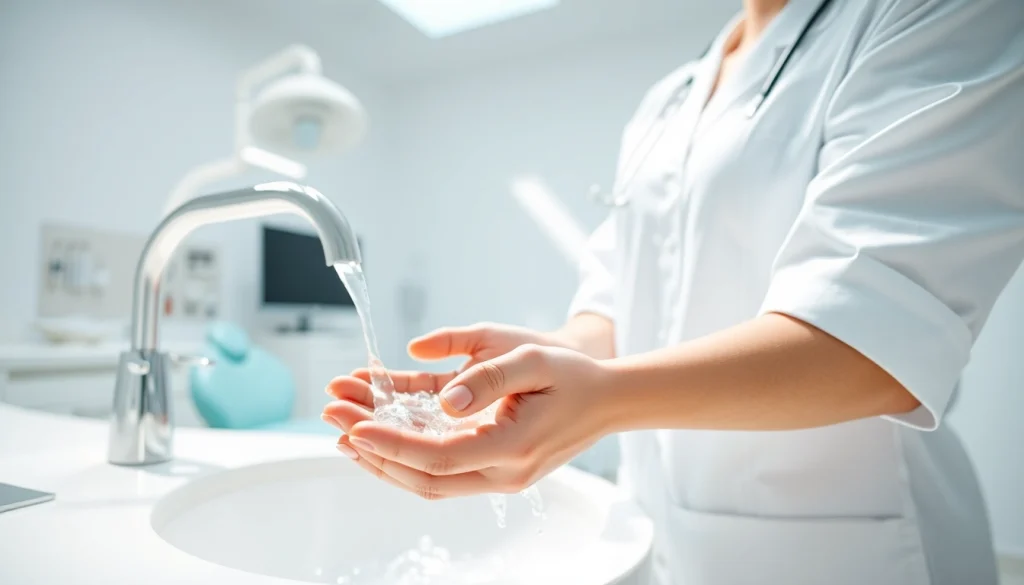The Essential Role of Hygiene in Dental Health: Practices for a Healthier Smile

Understanding Hygiene: A Foundation for Health
Hygiene is a broad term that encompasses the practices and conditions conducive to maintaining health and preventing disease, particularly through cleanliness. With a significant correlation to personal and public health, the importance of hygiene cannot be overstated. This article explores various aspects of hygiene, emphasizing how it serves as the cornerstone for physical health, mental well-being, and disease prevention. Particularly, we will delve into the critical elements of personal hygiene, dental care hygiene, and the latest advancements in hygiene practices. The following sections will provide insights reinforced by data and practical tips that readers can implement in their daily lives to foster better health. For more information about maintaining good hygiene, continue reading.
The Definition and Importance of Hygiene
Hygiene involves practices and habits that are crucial for the maintenance of health and cleanliness. The word “hygiene” originates from the Greek word “hygieinos,” which means “health.” Overall, hygiene can be viewed as a science associated with the establishment and maintenance of health through cleanliness. Numerous studies indicate that good hygiene practices significantly reduce the risk of infections and communicable diseases. For example, the CDC highlights the importance of hygiene, noting that behaviors such as proper handwashing can tremendously help in preventing illness. Furthermore, personal cleanliness contributes not just to physical health but also affects individuals’ self-esteem, relationships, and emotional health.
Types of Hygiene: Personal and Environmental
Understanding the two primary types of hygiene—personal and environmental—is vital for effective health maintenance:
- Personal Hygiene: This refers to the practices that individuals perform to care for their bodies. Key elements include daily routines like showering, oral hygiene, and handwashing. Maintaining personal hygiene can prevent personal discomfort and the spread of infections.
- Environmental Hygiene: This pertains to the sanitation of one’s surroundings, including home, workplace, and public spaces. Environmental hygiene encompasses practices such as proper waste disposal, regular cleaning of surfaces, and ensuring safe drinking water. Maintaining a hygienic environment is crucial for community health, particularly in densely populated areas.
The Role of Hygiene in Preventing Diseases
Good hygiene plays a pivotal role in curtailing the spread of various infectious diseases. The Centers for Disease Control and Prevention (CDC) emphasizes that practicing hygiene behaviors—such as handwashing, proper food preparation, and sanitation of living spaces—can lead to significant health improvements. For instance, during the COVID-19 pandemic, proper hygiene, particularly hand hygiene and respiratory etiquette, became paramount in preventing virus transmission. The World Health Organization correlates high hygiene standards with reduced incidences of outbreaks, notably in healthcare settings and households.
Practices for Maintaining Personal Hygiene
Daily Routines for Optimal Personal Hygiene
Establishing a daily routine is one of the most effective ways to maintain optimal personal hygiene. Here are essential daily practices:
- Showering/Bathing: Regular showers help remove dirt, sweat, and bacteria. It is essential to use appropriate hygiene products that suit your skin type.
- Oral Care: Brushing teeth at least twice a day and flossing are crucial for oral hygiene, preventing cavities, bad breath, and gum disease.
- Handwashing: Washing hands frequently, especially before meals and after using the restroom, is a critical practice for disease prevention. Always use soap and water and wash for at least 20 seconds.
- Skincare: Developing a skincare routine based on your skin type can enhance personal hygiene and feel fresh throughout the day.
Tips for Effective Handwashing Practices
Effective handwashing is one of the simplest yet most impactful hygiene practices. According to data from the CDC, handwashing can reduce respiratory illnesses by 21% among the general population. To ensure that handwashing is effective:
- Use clean running water to wet your hands.
- Apply soap and rub your hands together to create a lather.
- Scrub all surfaces, including between your fingers, under your nails, and backs of your hands for at least 20 seconds.
- Rinse your hands thoroughly under clean, running water.
- Dry your hands using a clean towel or air dry them.
The Connection Between Hygiene and Mental Well-being
Research has shown that there is a strong connection between hygiene practices and mental well-being. Maintaining cleanliness can boost self-confidence and reduce feelings of anxiety. For many individuals, personal hygiene is closely connected to their self-esteem; therefore, practicing good hygiene can lead to positive self-image and mental health. Additionally, good hygiene practices can help individuals feel more comfortable in social situations, reducing the likelihood of social anxiety.
Hygiene in Dental Care: Best Practices
The Role of Dental Hygiene in Overall Health
Dental hygiene is a critical aspect of overall health that often goes overlooked. Poor oral hygiene can lead to significant health issues, including heart disease, diabetes, and respiratory infections. The mouth acts as a pathway for germs that can lead to disease, underscoring the need for good dental hygiene practices. Maintaining oral health not only prevents dental problems like cavities and gum disease but can also positively impact one’s systemic health.
Techniques for Effective Brushing and Flossing
Proper brushing and flossing techniques are essential for maintaining good dental hygiene:
- Brushing: Brush your teeth at least twice a day for two minutes. Use a toothbrush with soft bristles and fluoride toothpaste. Position the brush at a 45-degree angle to the gums, using gentle circular motions.
- Flossing: Floss at least once a day to remove plaque and food particles from between the teeth where toothbrushes cannot reach. Use about 18 inches of floss, winding it around your fingers, and gently slide the floss between your teeth, forming a “C” shape around each tooth.
Regular Dental Check-ups and Hygiene Maintenance
In addition to daily brushing and flossing, regular dental check-ups play a vital role in maintaining oral hygiene. Visiting the dentist at least twice a year allows for professional cleaning, early detection of potential issues, and personalized advice on oral care practices. Dentists can spot problems that may not be visible and can provide treatments that improve both oral and overall health.
Common Hygiene Mistakes and How to Avoid Them
Identifying Poor Hygiene Habits
Recognizing poor hygiene habits is crucial for improvement. Common mistakes include:
- Infrequent handwashing, especially during cold and flu seasons.
- Neglecting personal grooming and skin care, which can lead to skin irritation and infections.
- Not using dental products (like mouthwash or dental floss) regularly, increasing the risk of oral issues.
- Ignoring laundry and home cleanliness, leading to a build-up of germs and allergens.
Strategies to Improve Hygiene Practices
Improving hygiene practices requires effort and consistency. Here are practical strategies:
- Create a daily hygiene checklist to ensure consistent practices.
- Set reminders for handwashing, dental care, and showering to establish routine.
- Educate yourself on proper hygiene techniques through reliable sources.
- Seek feedback from healthcare professionals about your hygiene practices.
Long-term Benefits of Maintaining Good Hygiene
Maintaining good hygiene practices offers numerous long-term benefits. Not only does it reduce the risk of infectious diseases, but it also supports overall health, promotes emotional well-being, and enhances quality of life. Regular hygiene routines can lead to lower healthcare costs over time, as individuals are less likely to experience issues that require medical attention.
Future Trends in Hygiene Practices
Advancements in Hygiene Technology
As technology continues to evolve, advancements in hygiene practices are emerging. Innovations such as touchless faucets, soap dispensers, and UV-C sanitizing devices are making it easier to maintain cleanliness without direct contact. Additionally, apps and wearable technology provide reminders and tips for maintaining hygiene routines, making it easier for people to adhere to good practices.
The Impact of COVID-19 on Hygiene Awareness
The COVID-19 pandemic has significantly raised global awareness around hygiene and its critical role in disease prevention. Public campaigns promoting hand hygiene, mask-wearing, and cleaning practices have made people more conscientious of their hygiene. This heightened awareness is likely to have lasting effects, with many individuals adopting elevated hygiene practices long after the pandemic has subsided.
Promoting Hygiene Education in Schools and Communities
Lastly, education is key in promoting hygiene practices within communities. Schools and local organizations can provide resources, workshops, and classes that educate individuals about the importance of hygiene. By emphasizing the relevance of hygiene education, communities can work towards a healthier populace, reducing the burden of preventable diseases and promoting well-being across all age groups.
In conclusion, hygiene is a fundamental aspect of health that encompasses both personal practices and environmental considerations. By prioritizing hygiene, individuals can improve their overall health, enhance their mental well-being, and play a part in disease prevention in their communities. As we continue to advance scientifically and socially, the importance of hygiene will remain a priority that benefits individuals and society as a whole.






